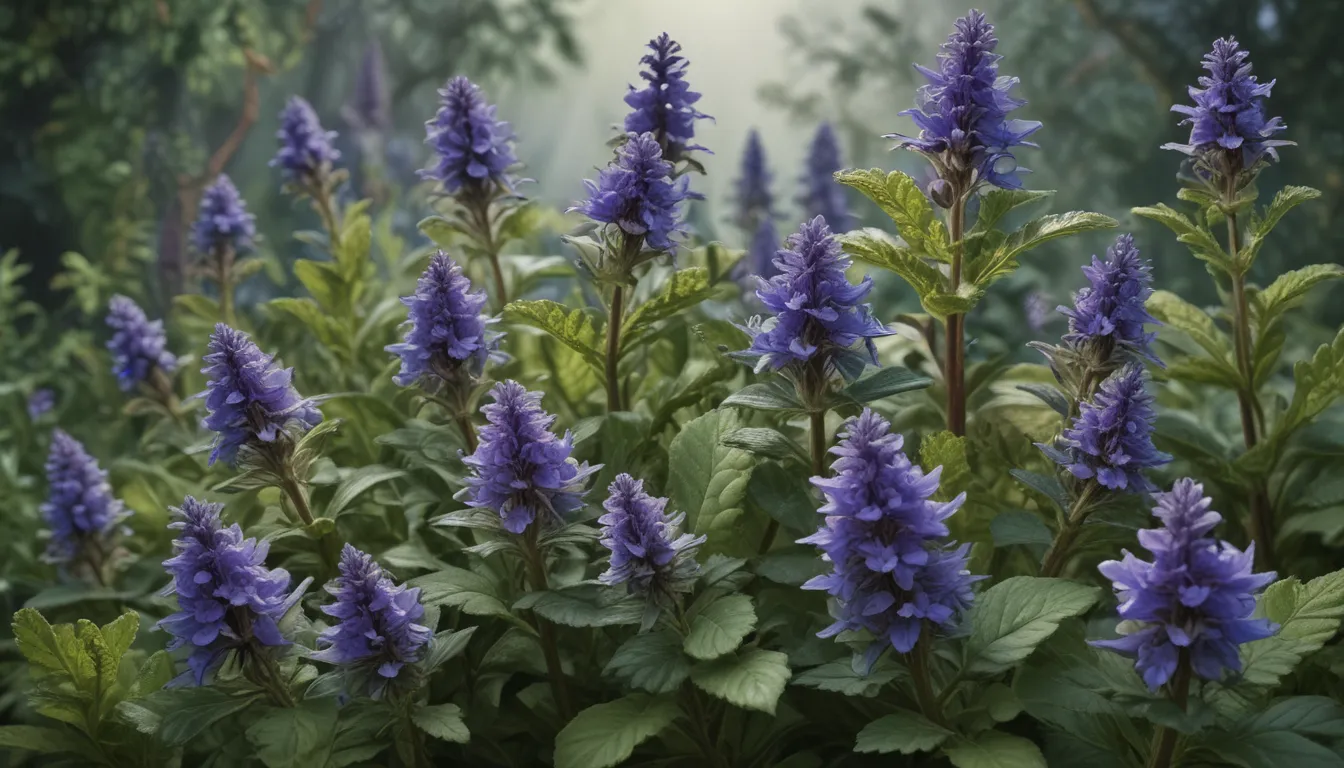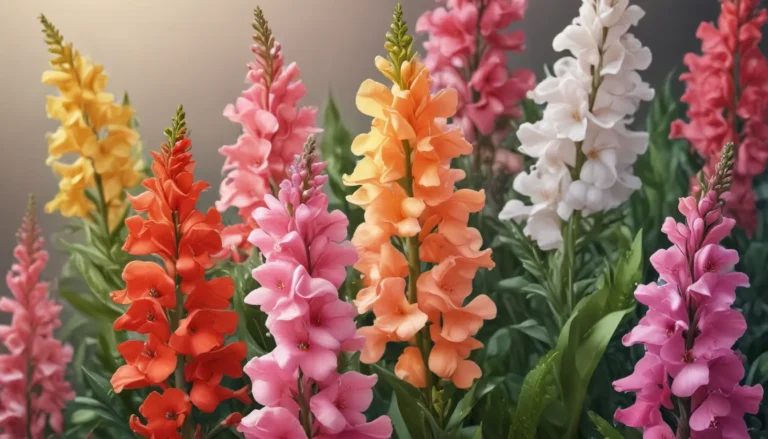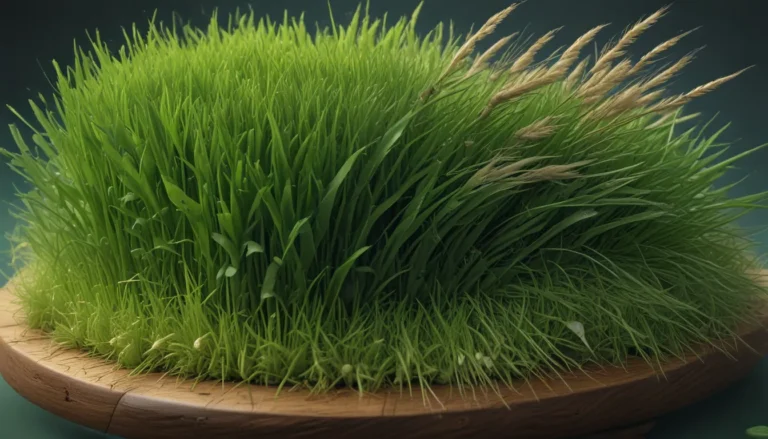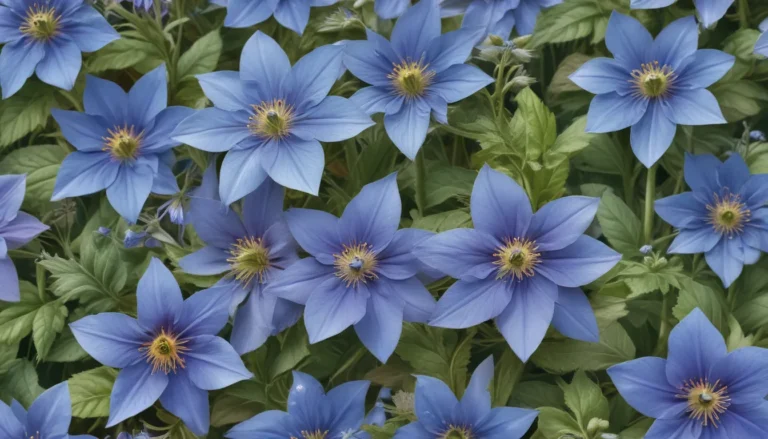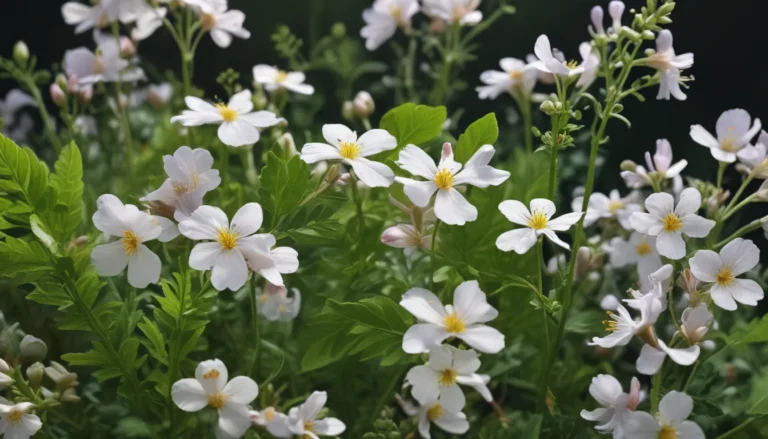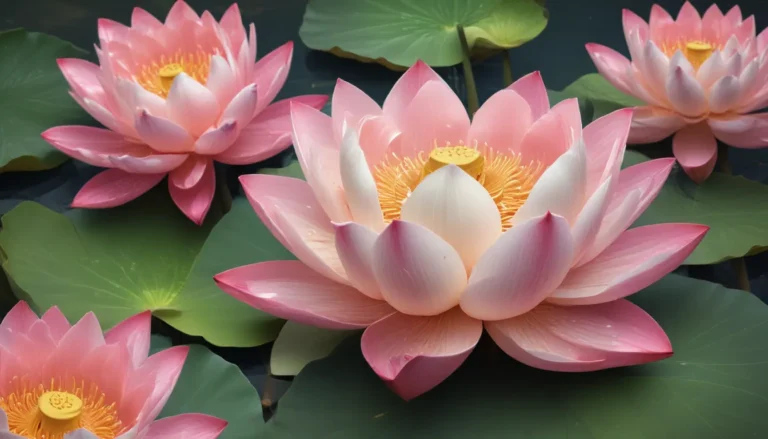The pictures we use in our articles might not show exactly what the words say. We choose these pictures to make you interested in reading more. The pictures work together with the words but don’t take their place. The words still tell you the important facts.
Are you ready to embark on a journey of discovery into the enchanting world of Ajuga, also known as Bugleweed? This captivating plant, belonging to the mint family, offers a wealth of surprises and delights waiting to be uncovered. From its colorful blooms to its medicinal properties, Ajuga has a rich history and a diverse range of attributes that make it truly stand out. Join us as we delve into 8 intriguing facts about Ajuga that will deepen your appreciation for this remarkable plant and inspire you to explore its hidden wonders.
Unveiling the Origins of “Ajuga”
The name "Ajuga" has its roots in Latin, derived from the word "ajuga," which amusingly means "not really a buga" (just kidding!). This genus of flowering plants belongs to the mint family, Lamiaceae, and encompasses over 40 diverse species with unique characteristics.
Embracing the Alias: “Bugleweed”
One of the common names for Ajuga is Bugleweed, inspired by the shape of its flowers resembling a bugle horn used in military ceremonies. This charming moniker adds to the allure of this versatile plant, evoking images of elegance and tradition.
Ajuga’s Ground-Hugging Perennial Charm
Ajuga plants are known for their low-growing nature, forming dense mats of foliage that make them perfect as ground covers. Their ability to quickly fill in empty spaces in a garden adds a touch of lushness and vibrancy to any landscape.
Dazzling Diversity in Flower Colors
Prepare to be amazed by the vibrant array of flower colors that Ajuga plants showcase, ranging from shades of blue, purple, pink, to white. These colorful blooms create a stunning contrast against the backdrop of deep green foliage, adding a visual feast to any garden.
A Global Heritage: From Europe to Africa
While Ajuga can be found in various regions worldwide, the majority of species hail from Europe, Asia, and Africa. Their adaptability to different climates and habitats speaks to Ajuga's resilience and ability to thrive in diverse environments.
Harnessing the Healing Power of Ajuga
Delve into the realm of traditional medicine with Ajuga, as its plants have long been prized for their medicinal properties. Compounds such as ajugoside found in Ajuga offer anti-inflammatory and antioxidant benefits, making it a valuable asset in herbal remedies.
Buzzing with Life: A Haven for Pollinators
Bees and butterflies rejoice in the presence of Ajuga's vibrant flowers, which serve as a magnet for these essential pollinators. By welcoming Ajuga into your garden, you not only add beauty but also support the ecosystem by promoting biodiversity.
Endless Possibilities: A Plethora of Ajuga Species
With over 40 species of Ajuga to choose from, enthusiasts are spoiled for choice when it comes to adding this captivating plant to their gardens. Each species boasts its own unique traits and beauty, offering endless possibilities for gardeners.
Opening the Door to Ajuga’s World
In conclusion, Ajuga, or Bugleweed, epitomizes nature's wonder with its fascinating attributes and rich history. Whether you're a seasoned gardener or a nature enthusiast, Ajuga's allure is undeniable. Its ability to thrive in various environments, attract pollinators, and offer health benefits makes it a cherished addition to any garden or herbal medicine cabinet.
So next time you encounter Ajuga, take a moment to marvel at its unique qualities and explore the mysteries that surround it. From its folklore to its spreading nature, Ajuga is a plant that never ceases to captivate and inspire.
FAQs: Your Guide to Caring for Ajuga
Q: How do I care for Ajuga in my garden?
- Ajuga thrives in moist, well-drained soil.
- It prefers partial shade but can tolerate full sun in cooler climates.
- Regular watering and occasional fertilization support Ajuga's growth and spread.
- Monitor for signs of disease or pests to maintain Ajuga's health.
Q: Can I use Ajuga in herbal remedies?
- Yes, Ajuga has a history of medicinal use.
- Its leaves and flowers are used to create teas and tinctures with respiratory, anti-inflammatory, and skin benefits.
- Consult a healthcare professional before using herbal remedies.
Q: Does Ajuga attract pollinators?
- Absolutely! Ajuga's vibrant flowers draw in bees, butterflies, and other pollinators.
- Planting Ajuga supports the local ecosystem and promotes biodiversity.
Q: Is Ajuga invasive?
- Some Ajuga varieties spread rapidly, ideal for ground cover.
- To control growth, choose non-invasive cultivars or use physical barriers like edging or containers.
Embark on an Ajuga Adventure
The allure of Ajuga extends far beyond what meets the eye. Discover the untold stories of its adaptability, resilience, and captivating charm. Step into the enchanting world of Bugleweed and witness firsthand its remarkable ability to thrive in diverse environments. Let Ajuga capture your imagination and leave you in awe of its hidden wonders and untapped potential.
Finding Inspiration in Ajuga’s Enigmatic World
Each fact about Ajuga shared here is a testament to our dedication to providing engaging and reliable content for our readers. With your contributions and our meticulous editing process, we ensure that every detail presented is both fascinating and authentic. Trust in our commitment to quality and embark on a journey of exploration and learning as you delve into the captivating world of Ajuga.
Prepare to be enchanted by Ajuga's allure and embark on a fascinating journey into the world of Bugleweed. Let its vibrant colors, medicinal properties, and ecological significance ignite your curiosity and inspire a deeper appreciation for this remarkable plant. Whether you're a gardener, a nature enthusiast, or simply curious about the wonders of the natural world, Ajuga is sure to captivate your heart and soul. Explore, discover, and celebrate the beauty and diversity of Ajuga – a plant that truly stands out in the botanical world.
